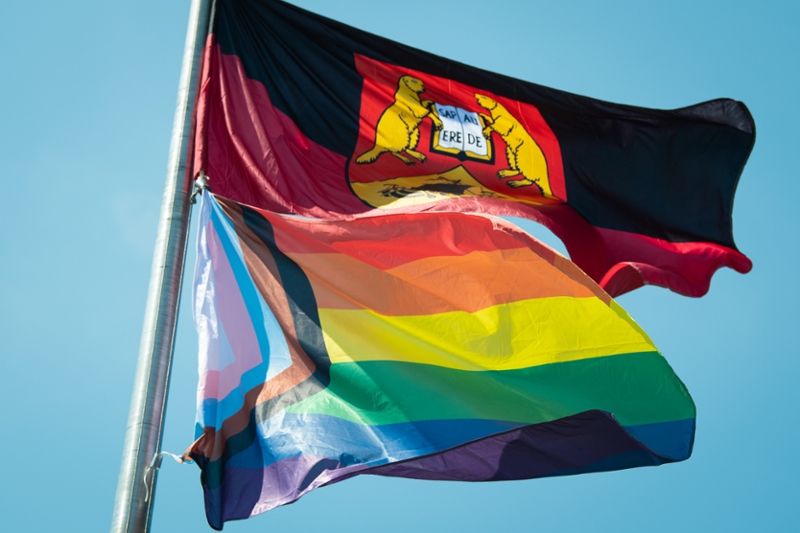UNB professor uses research data to help Canada live up to its values
Author: UNB Newsroom
Posted on Aug 19, 2022
Category: UNB Fredericton

A University of New Brunswick psychology professor whose life was directly affected by the Government of Canada’s purge of LGBT employees found a way to turn her negative experience into positive change. Dr. Carmen Poulin, with her life and research partner Dr. Lynne Gouliquer, who was a member of the Canadian Forces for 16 years, used their lived experience and research to bring to light the discriminatory policy and its effects on thousands of government employees.
From the 1950s to the 1990s, the Government of Canada systematically discriminated against, harassed and fired an estimated 9,000 LGBT people. LGBT people were identified as a security risk and vulnerable to blackmail by “enemy” agents because of their sexuality. However, research has shown that no supposed vulnerability was ever actually exploited. The anti-LGBT purge of the Canadian military and national security federal civil service pushed thousands of Canadians out of the military and civil service or further into the closet. LGBT members could not live authentic lives because they feared losing their livelihoods, networks and purpose.
Between 1997 and 2013, Drs. Poulin and Gouliquer interviewed 126 survivors to give a voice to this Canadian experience and document how the policy negatively impacted lives. Dr. Poulin and Dr. Gouliquer’s experience conducting this research and the contacts they made with purge survivors, allies, and other academics led to the creation of the We Demand an Apology Network. The objective of the network was realized in November 2017 with an apology from the Trudeau government.
Dr. Poulin and Dr. Gouliquer were both in the gallery on Nov. 28, 2017, when Prime Minister Justin Trudeau apologized to the 2SLGBTQ+ community from the floor of the House of Commons. They both describe the experience as “surreal.” Their research data was used to inform the government during the preparation of the apology.
“Apologies are important words and a first step that can help in coming to terms with some of the events that took place,” said Dr. Poulin.
Data from Dr. Poulin and Dr. Gouliquer’s research was also used (while respecting the anonymity, confidentiality and confidence they promised to their participants) as evidence and understanding of the extent and the devastating impact the LGBT Purge had in the preparation of the class action suit. The suit was settled in 2018. The settlement included financial compensation for those harmed by anti-LGBTQ+ discrimination in the military. The settlement also included funds for education about the purge, a commemorative monument and an exhibit at the Canadian Museum for Human Rights. Dr. Gouliquer is a member of the advisory board for the exhibit at the Canadian Museum for Human Rights.
Drs. Poulin and Gouliquer do not want people to forget what happened. They said the gains made over the past two decades are “fragile,” and it is important for Canadians to remember what happened so that the same mistakes are not repeated.
Drs. Poulin and Gouliquer are currently conducting another SSHRC-funded research project on the lives of 2SLGBTQIA+ members of the military and their partners using the same research methodology they developed to document the experiences of the LGBT Purge survivors. The Psycho-Social Ethnography of the Commonplace (P-SEC) is a feminist qualitative research approach. An important goal of P-SEC studies is to identify and develop policy recommendations and social changes that have the potential to improve the lives of marginalized groups. Dr. Poulin believes insights from 2SLGBTQIA+ soldiers and partners are crucial to understanding their current reality and the Canadian military’s betterment.
Dr. Poulin and Dr. Gouliquer’s work is proof of the positive difference social science research can make.
